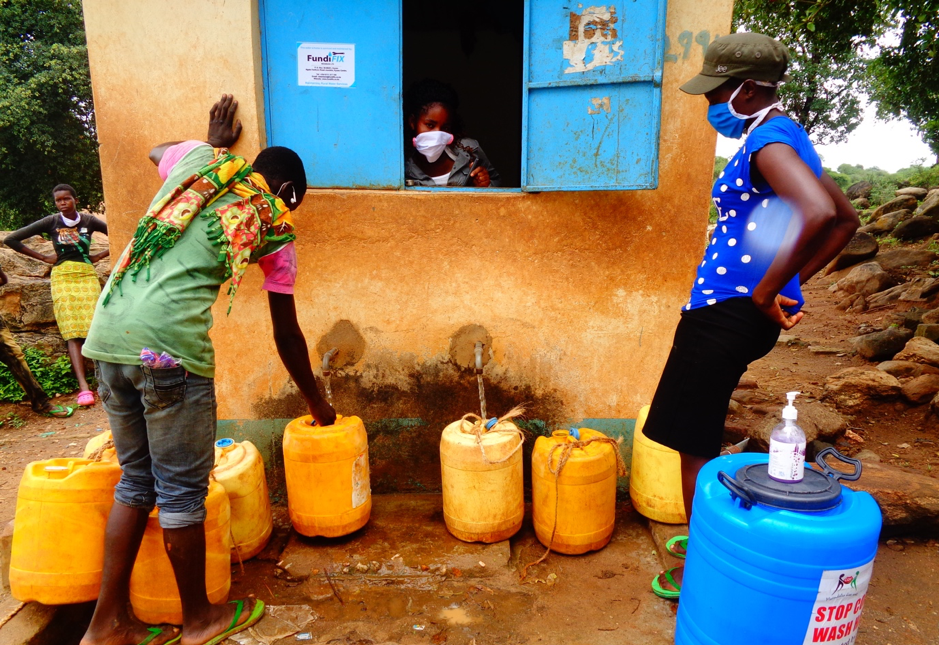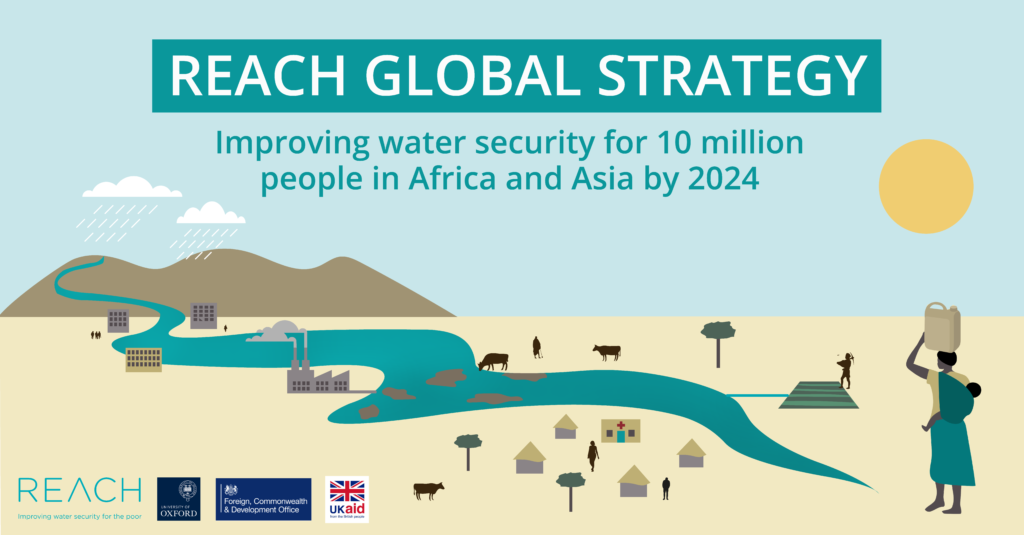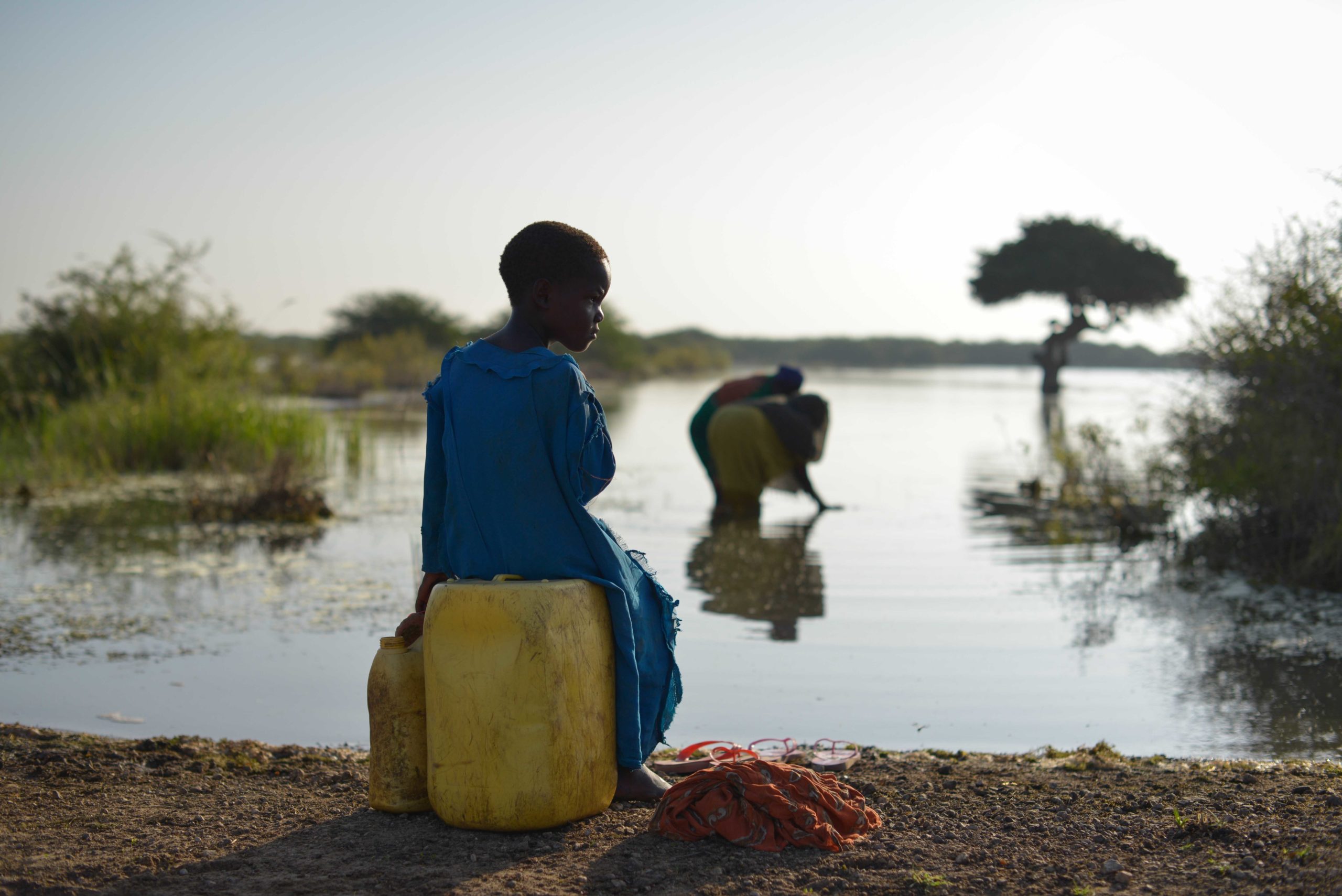New funding from the Foreign, Commonwealth & Development Office (FCDO) will support REACH to improve water security for 10 million people in Africa and Asia. The FCDO’s grant will now extend to 2024 and increase to £22.5 million, to support REACH improve water security by delivering world-class science to transform policy and practice. The new REACH Global Strategy outlines progress to date and priorities for the work until 2024.
Professor Charlotte Watts, Chief Scientific Adviser and Director of Research & Evidence Division, at the Foreign, Commonwealth & Development Office says, ‘More than ever, we recognise that water security – that is, ensuring sufficient quantity and quality of water for different uses with an acceptable level of risk – is critical to the health, well-being and prosperity of people. We know that the poorest, and most disadvantaged, often lack safe and affordable water to drink or wash their hands, and are hit hardest by extremes in weather.
‘The REACH programme, led by the University of Oxford, has made advances in science, policy and practice to understand and address these inequalities for over two million people since 2015. I am delighted that the FCDO is supporting additional REACH work which will help deliver water security for 10 million poor people in Africa and Asia by 2024.’
The REACH programme’s work, which began in 2015, has already improved water security for more than two million people, working with UNICEF and in partnership with government, private sector and academia in Bangladesh, Ethiopia and Kenya.

Professor Louise Richardson, Vice Chancellor, University of Oxford says, ‘The mission of the University of Oxford since the time of its foundation has been to conduct research, to educate the next generation, and to contribute to the world around it. The REACH programme admirably reflects that mission through its advancement of interdisciplinary science for the benefit of those most in need.
‘We at Oxford are committed to supporting the next phase of the work in order to improve the lives of over 10 million people who are desperately in need of support. We are very grateful to the Foreign, Commonwealth & Development Office for funding this work and to our many partners across the globe who collaborate with us in advancing the goals of REACH.’
Kelly Ann Naylor, Associate Director, Water, Sanitation and Hygiene (WASH) Section, Programme Division, says, ‘UNICEF works to protect the rights of every child, everywhere. We recognise water insecurity as a major threat to millions of children living with unacceptable water, sanitation and hygiene services at home, in schools and in health care facilities. Our partnership with REACH recognises science has a critical role in designing and delivering effective policy and improving practice on the ground. We are delighted to continue this collaboration and build on our work in Bangladesh, Ethiopia and Kenya.’
Today, we are also launching our new Global Strategy for 2020-2024, which recognises the progress to date and identifies gaps to strengthen future work aligned to four priority themes: climate resilience, institutions, water quality and inequalities.

REACH’s work on inequalities is of the highest priority to support the UK Government’s commitment to eradicate poverty. Gendered inequalities in pay, legal rights or access to quality education is often increased with floods and droughts, which make basic water services unaffordable, unreliable or unsafe to drink. REACH will be working to understand and respond to these inter-sectional inequalities in ongoing work.
According to REACH Directors, Professors Rob Hope and Katrina Charles, ‘The COVID-19 pandemic has starkly illustrated how multiple water security risks affect the lives and livelihoods of billions of people across Africa and Asia. For example, the pandemic has compounded the severity of the impacts resulting from water-related climate hazards, such as floods, droughts and cyclones. Ensuring water infrastructure functions with affordable, reliable and safe services in these complex environments in times of crisis is critical to protect vulnerable individuals, communities, schools and healthcare facilities. Building water secure institutions reduces the need for and the cost of emergency funding to avoid unnecessary hardship on the most vulnerable, and increases resilience to future risks and shocks.’
The REACH programme is led by the School of Geography and the Environment and the Smith School of Enterprise and the Environment, in collaboration with the Department of Engineering Science and the Department of International Development. UNICEF at the global, regional and county office is a key partner in collaboration with national governments and their relevant ministries.
The Bangladesh University of Engineering and Technology, Dhaka University, icddr,b, University of Nairobi and the Water and Land Research Centre (University of Addis Ababa) lead our scientific work in each focus country linked to a global network of partners, including IFPRI, IRC, IWA and RWSN.
To find out more about REACH’s work to date, and upcoming plans, you can read the programme’s new Global Strategy 2020-2024.

